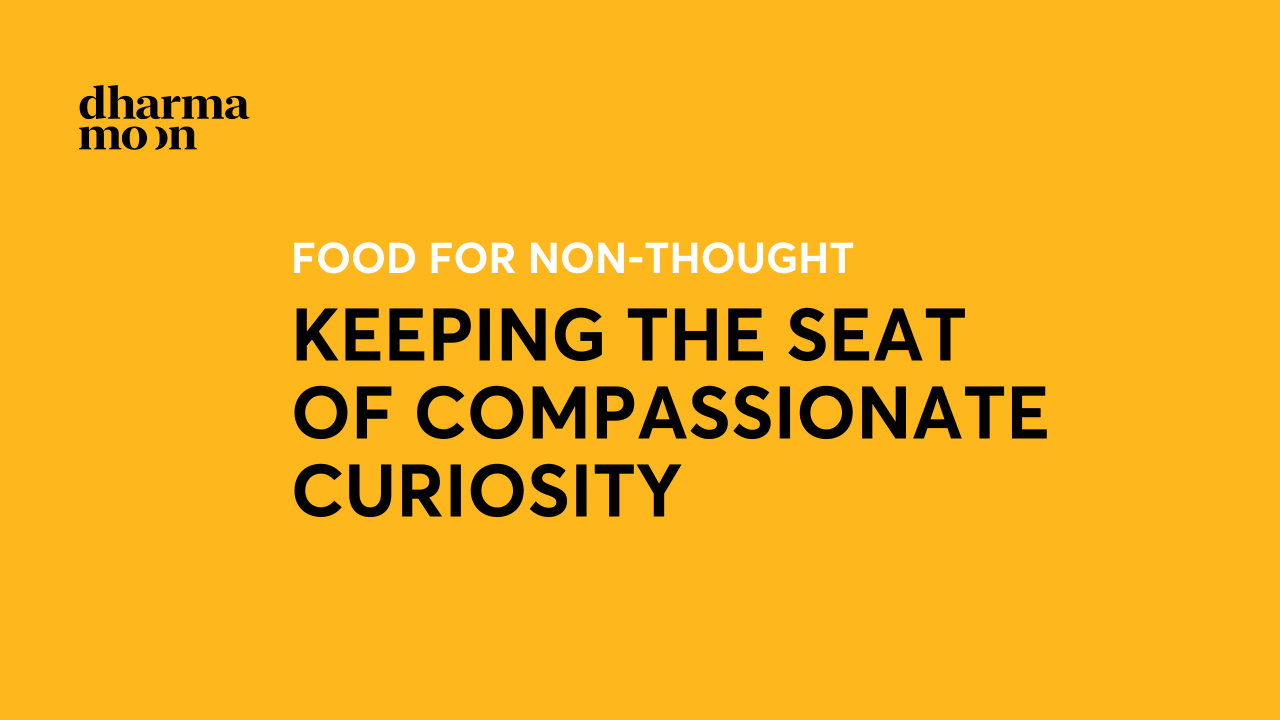Keeping the Seat of Compassionate Curiosity

Written by René Fay
“In a world of intense debates and polarized views, it’s tempting to close off, armor up, and defend our positions. But practicing compassionate curiosity allows us to stay open without abandoning our beliefs. It doesn’t require us to be defenseless or give up our values. Instead, it invites small, humanizing gestures.”
There’s no shortage of opportunities to feel disconnected and disheartened these days—divisive headlines, heated debates, and a constant sense of us vs. them. Even casual social interactions can feel like navigating a minefield. How can we stay grounded in our shared humanity amidst so much fragmentation?
Curiosity is key. Curiosity fosters openness, allowing us to discover what is rather than projecting our assumptions onto people or situations. The Tibetan word for meditation, gom, translates to “becoming familiar with,” highlighting the importance of curiosity in truly understanding ourselves and others.
But it’s difficult to remain curious when we feel defensive, afraid, or righteous. Many of us can relate to this in our practice—when uncomfortable emotions arise, like regret or guilt, we sometimes push them away or make harsh judgments rather than adopt an attitude of curiosity. Meditation invites us to greet discomfort with curiosity—to acknowledge it as part of our experience. In doing so, we preserve our inherent worthiness, despite and among our imperfections.
This practice of curiosity doesn’t just apply on the cushion; it extends into our daily lives, especially when faced with conflict. In a world of intense debates and polarized views, it’s tempting to close off, armor up, and defend our positions. But practicing compassionate curiosity allows us to stay open without abandoning our beliefs. It doesn’t require us to be defenseless or give up our values. Instead, it invites small, humanizing gestures.
When something arises—on the cushion or as we move through the world—that creates the impulse to jump to conclusions, spiral in guilt or shame, or armor up in righteousness, can you pause to reflect on the inherent humanness of those involved? Can you incorporate a sense of wonder by asking yourself a question rooted in curiosity, like, “I wonder what their favorite song is?” or “What childhood toy brought them joy?”
These simple questions don’t require answers, but they help us remember that even those with whom we disagree are human too. When I feel myself bracing to defend or shutting down in reaction to someone else, I try to take a moment to ponder, “I wonder what their favorite baked good smells like.” By acknowledging the shared humanity in others, we can navigate conflict with more empathy and understanding.
In a world that often seeks to erase or diminish our humanity, we can, little by little, extend curiosity and compassion—both to ourselves and to others—fostering connection even in the most challenging times.

